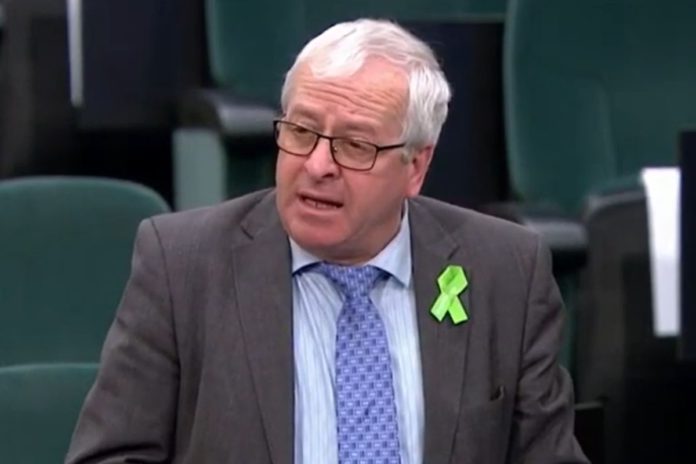In this article, the leader of the Rural Independent Group, Mattie McGrath, describes a 25% agricultural emissions reduction as a full-frontal attack on rural communities.
As oil-producing nations get a free pass on emissions, Ireland’s government crushes the family farm.
The government’s decision to mandate farmers to cut agricultural emissions by 25% by 2030 is a real kick in the teeth.
This government is hellbent on clinging to power rather than helping rural communities.
Today’s decision represents a devastating blow to the entire agriculture sector and rural communities.
Agricultural emissions reduction
Irish farmers, who are among the most carbon-efficient food producers in the world, will be, despite the spin, hit extremely hard by this decision.
They have much less scope to lower emissions without drastically compromising food production and reducing the national herd.
There are approximately 6.5 million cattle in Ireland, on more than 100,000 farms. They represent a crucial part of the agri-food sector.
The decision, as we have consistently warned, will lead to a cull of the national cattle herd at a time when other countries are drastically increasing herd sizes.
For instance, Brazil plans to increase its national herd by 24 million cattle or four times the size of Ireland’s total herd size, by 2030.
National herd cull & smaller farmers out of business
Elsewhere, the emission cuts for Irish farmers are much deeper than in many other countries that have a heavy industrial base, such as the UK, Germany, France, and Italy.
That is because their agriculture emissions are disproportionately lower as a percentage of overall emissions. However, our government has ignored this.
Today’s decision will drastically impact Ireland’s potential to produce food. It will increase our dependence on food imports from countries with much less sustainable production methods.
Therefore, the government’s attack on agriculture will destroy the family farm. It will likely lead to small farmers being forced out of business in the coming years.
Scapegoats of climate change
Irish farmers are the scapegoats of climate change, receiving no exemption or special arrangement.
Meanwhile, countries including the US, Saudi Arabia, and Norway and other oil, natural gas, and coal exporting countries receive a full veto for their primary indigenous sectors (fossil fuels), under the Paris Climate Agreement – in that they do not have to count emissions from exports – as they are counted by the country which ultimately burns them.
Given that Irish agriculture exports over 80% of produce, why did our government not seek such a deal to protect our indigenous sector? Was it even considered?
Having a similar deal in place for Irish farmers would have meant no need to reduce emissions or cut production at the farm level.
This has been the recommended approach of the Rural Independent Group all along – but the government ignored our pleas at every turn.
Callous and cruel
The full-frontal attack on the rural way of life by this government is callous and cruel.
Governments around the world have taken a pause or changed course on reducing carbon emissions in light of the dramatic changes in circumstances.
But our government continues to proceed with severe mandatory cuts. This is despite the fact that Ireland produces only 0.09% of the total global emissions.
Setting such high legally-based climate change emission reduction targets for farmers will force the closure of farms nationally and send food prices soaring – at a time when inflation is rocketing.
These deep farm emission reductions, within the currently evolving inflation-induced environment, are reckless and dangerous.
All in all, the farm reduction targets show that this government is neither an ally nor an advocate for Irish farmers.
Other articles on That’s Farming:





